
Learning Resources for Teachers and Students
The university strongly encourages both teachers and students to stay abreast of the latest advancements in AI technology. The Teaching and Learning Development Office gathered a range of external resources, including research reports, news articles, and guideline videos on AI in education. Teachers and students can check out these resources to update themselves on the latest trends and techniques of AI.
Resources
- Generative AI platforms like Poe and ChatGPT provide detailed documentation and guidelines to their users. These comprehensive materials offer step-by-step instructions, practical examples, and explanations of key concepts, empowering users to understand the intricacies of generative AI technology. The documentation also provides troubleshooting tips and best practices.
| No | Website | Description |
|---|---|---|
| 1. | OpenAI Documentation | An overview of the OpenAI Platform, explaining its features, capabilities, and usage, along with documentation and resources for users to get started. |
| 2. | OpenAI Example | The website provides a collection of examples and demonstrations showcasing the capabilities and usage of the OpenAI Platform |
| 3. | OpenAI Cookbook | A comprehensive resource hub that provides API documentation, examples, and techniques for various tasks, including text generation, fine-tuning models, and working with embeddings and search. |
| 4. | OpenAI Teaching with AI example | Exploration of how teachers can use ChatGPT in the classroom, providing examples, prompts, and resources for teaching with AI. |
| 5. | Create a Prompt Bot using Poe | A step-by-step guide on creating a prompt bot, including customization options and defining bot behaviour using Poe. |
| 6. | Stable Diffusion API Docs | Documentation for the Stable Diffusion API, including features, authentication, endpoints, error responses, and usage instructions. |
- You can also start your journey of learning Artificial Intelligence through renowned online platforms like Coursera, edX and LinkedIn Learning. These platforms offer a wide range of courses and programs that delve into the fascinating world of AI, providing learners with the opportunity to acquire in-depth knowledge and skills in this rapidly evolving field.
Assessment Tools
- In order to help teachers evaluate the susceptibility of their assignments to potential misuse of generative AI, Turnitin has developed some assessment tools that can assist teachers in assessing the vulnerability of their assignments to the misuse of generative AI.
| No | Website | Description |
|---|---|---|
| 1. | AI misuse rubric | Guidance for teachers to assess writing assignments in the context of AI, focusing on student voice, critical thinking, sources and citations, personalization, and ethical use of AI. |
| 2. | AI misuse checklist | This checklist can help teachers review assignment prompts for potential vulnerabilities to generative AI tools. |
News and Reports
- To gain insights into the recent academic applications and trends of Generative AI, you can also refer to the following news and research. By exploring these reports and studies, you can stay informed about the latest advancements and potential implications of Generative AI in academia.
| No | Website | Description |
|---|---|---|
| 1. | How to Promote Responsible Open Foundation Models | The article discusses the importance of responsible development and use of open foundation models in AI, featuring insights from experts in academia, industry, and government. |
| 2. | Feedback from an AI-driven Tool Improves Teaching | A Stanford-led study reveals how AI-driven feedback tool enhances teaching practices, specifically in the area of student engagement, leading to improved student satisfaction and completion rates. |
| 3. | Guidance for Generative AI in Education and Research | A general guidance published by UNESCO on the use of generative AI in education and research, covers topics such as ethics, technological change, educational technology, and policy. |
| 4. | Generative AI - a Primer | Discussing the impacts of generative AI on education, introducing AI text generators and exploring how students and teachers use generative AI to facilitate learning and teaching. |
| 5. | Generative Artificial Intelligence for Education and Pedagogy | Discussing the use of generative AI in education, including its benefits, limitations, and recommendations for its responsible integration into educational settings with case studies of different types of courses. |
| 6. | Generative Artificial Intelligence in Education: What are the opportunities and challenges? | Analysing the opportunities and challenges of using generative artificial intelligence in education. |
| 7. | Student perceptions of generative AI | The report examines how students currently use generative AI and explores its potential impact on their learning experience, covering areas such as usage, concerns, assessments, support, and significance. |
| 8. | 2023 EDUCAUSE Horizon Report - Teaching and Learning Edition |
The report discusses key trends, emerging technologies, and practices shaping the future of teaching and learning in higher education, providing scenarios and implications for the future. |
| 9. | 2023 EDUCAUSE Horizon Action Plan: Generative AI |
The report focuses on the implementation and impact of generative AI in higher education, including challenges, strategies, and recommendations for successful adoption. |
| 10. | Students’ voices on generative AI: perceptions, benefits, and challenges in higher education |
The research explores university students' perceptions of generative AI technologies in higher education, specifically focusing on ChatGPT. |
HKSYU ChatGPT Tutorials
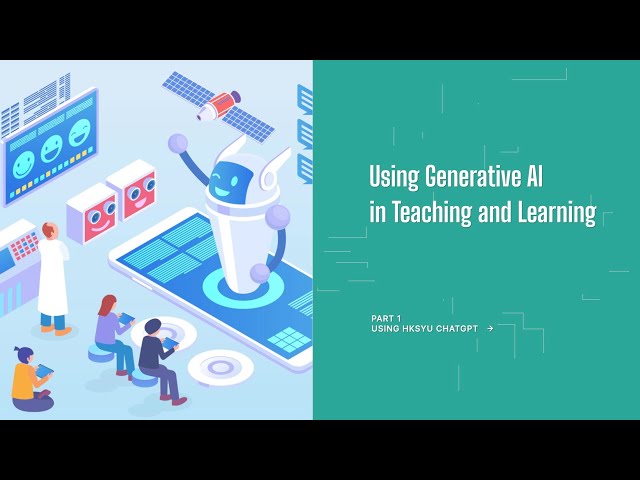
01 . Using HKSYU ChatGPT
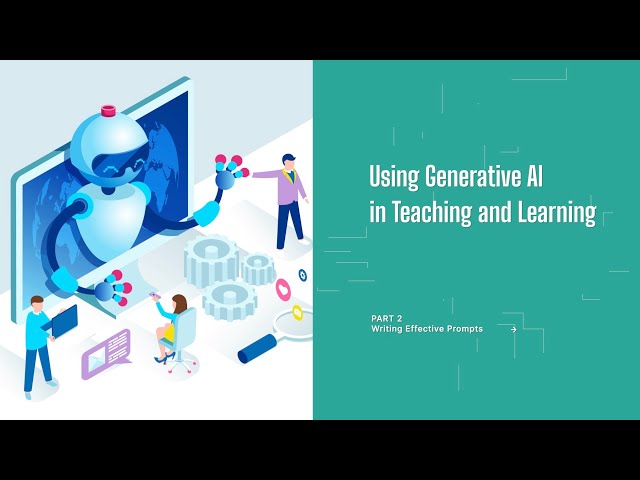
02 . Writing Effective Prompts
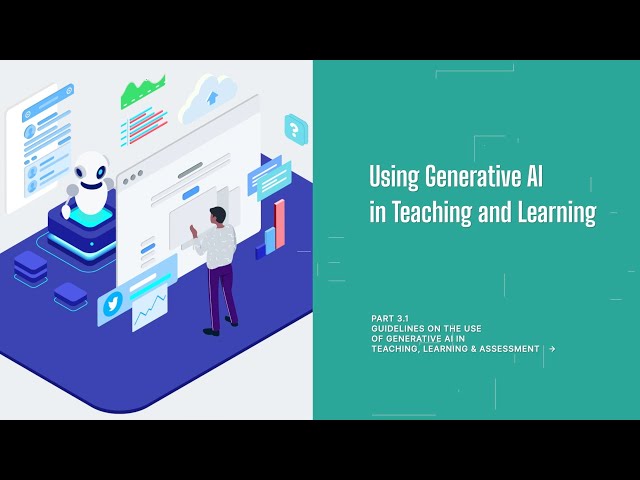
03 . Guidelines on the Use of Generative AI in Teaching, Learning and Assessment Part1
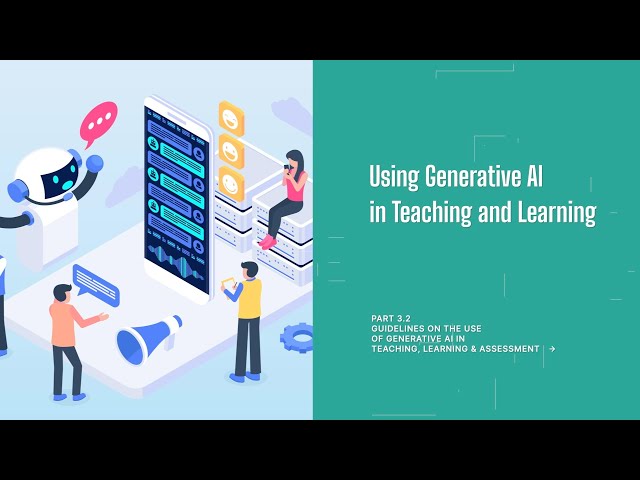
04 . Guidelines on the Use of Generative AI in Teaching, Learning and Assessment Part2
Video Recordings of the AI in Education Series Workshops

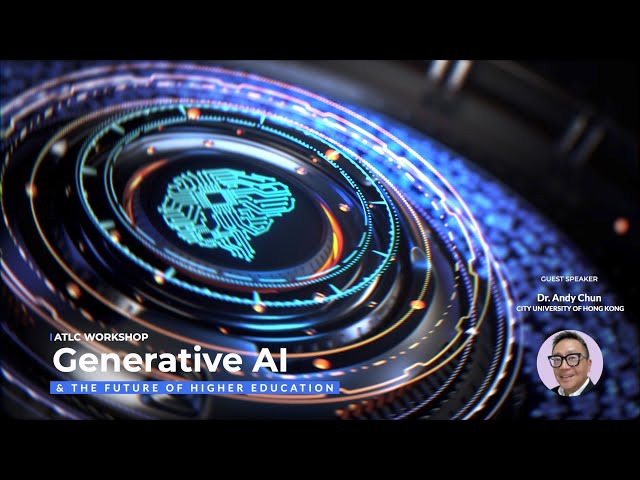
01 . Generative AI & The Future of Higher Education by Prof. Andy Chun (Adjunct Professor of City University of Hong Kong; Former Vice-President, Hong Kong Computer Society; Regional Director of Technology Innovation of Prudential Plc)
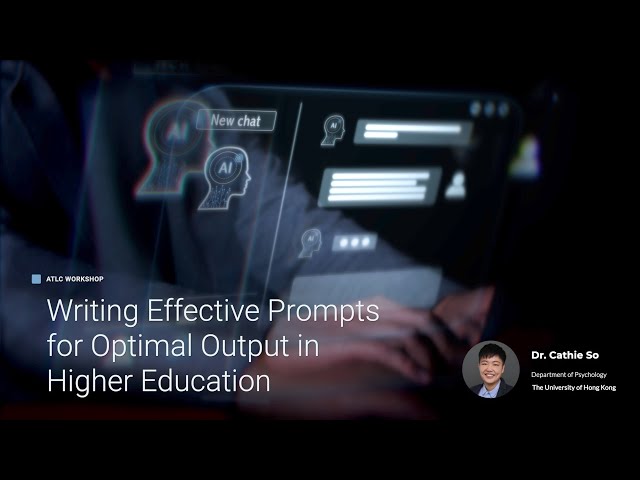
02 . Writing Effective Prompts for Optimal Output in Higher Education by Dr Cathie So (Researcher of Ethereum Foundation; Honorary Lecturer of Department of Psychology of The University of Hong Kong)
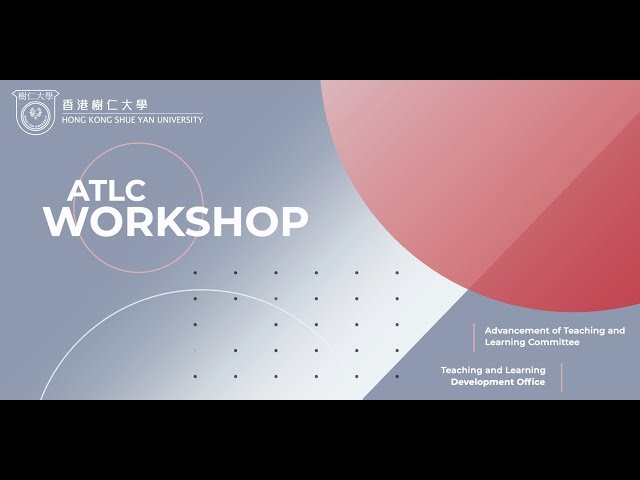
03 . Creating The "Unseen": Applications Of Generative AI In Teaching And Learning By Dr Leon Lei (Senior E-Learning Technologist, Technology-Enriched Learning Initiative, HKU)

04 . Opportunities And Challenges For Education In The Era Of Generative AI By Prof King (Chair, Department Of Computer Science And Engineering, CUHK)

05 . Technology Adoption & Potential Use Of AI In Higher Education By Prof Ma(Ex-Director, School Of Continuing & Professional Education, CityU)
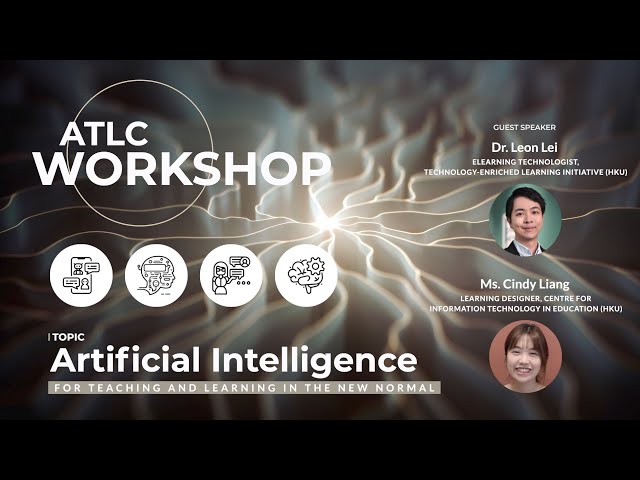
06 . Artificial Intelligence for Teaching & Learning In the New Normal by Dr Leon Lei (Senior E-Learning Technologist, Technology-Enriched Learning Initiative, HKU) & Miss Cindy Liang (Learning Designer, Centre for Information Technology in Education, HKU)
↑


